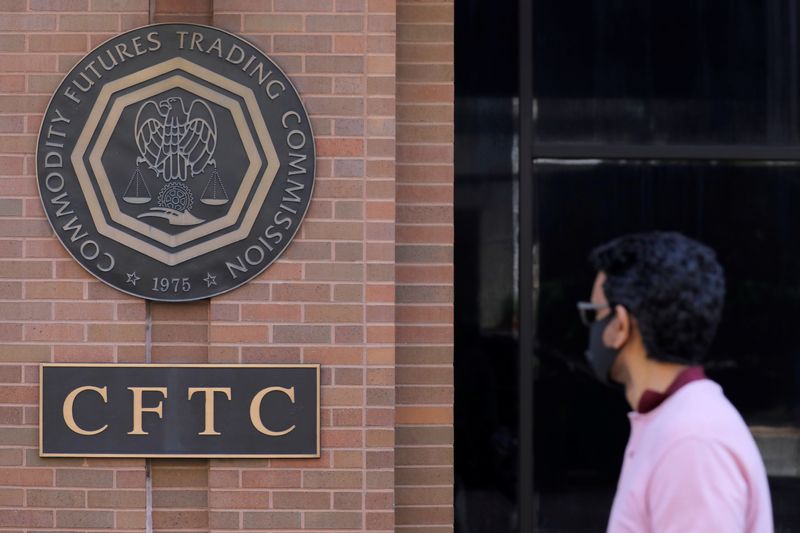US CFTC official pushes for national financial fraud database
2023.09.11 15:28

© Reuters. Signage is seen outside of the US Commodity Futures Trading Commission (CFTC) in Washington, D.C., U.S., August 30, 2020. REUTERS/Andrew Kelly
By Chris Prentice
NEW YORK (Reuters) – A top U.S. regulator on Monday proposed the creation of a federal registry to make it easier for investors and law enforcement to dig up information on past financial fraud convictions and civil fines.
Christy Goldsmith Romero, a commissioner of the Commodity Futures Trading Commission (CFTC), said in remarks at a conference that she is pushing for U.S. regulators to create a searchable, centralized database of financial misconduct that could make it easier for the public to arm themselves against fraudsters.
“This would be a comprehensive record that the public can easily check before giving someone their money, their trust and their business,” she said at an industry conference.
While some regulators compile databases of disciplinary actions or consumer complaints, there is no national database to make it easier to search across federal agencies or state regulators.
A centralized registry would also make it easier for the government to identify repeat offenders and deter potential fraudsters, Goldsmith Romero said.
Goldsmith Romero had suggested the registry several years ago while serving as the watchdog of a key 2009 financial crisis bailout program. In March 2022, she joined the CFTC as one of five commissioners.
“This was something I was thinking about again recently with respect to crypto,” she said in an interview with Reuters. “We know that fraud is massively present in the crypto space, but there’s so much disjointed information to people to try to get to.”
In Goldsmith Romero’s previous role, the government watchdog did launch a database of such financial crimes related to the Troubled Asset Relief Program. Such a centralized database could serve as a model for a larger, national registry that federal regulators could organize and that state regulators could also participate in.
Finding a single agency to host the database and securing the initial funding to get it off the ground would be a challenge though, she said.








